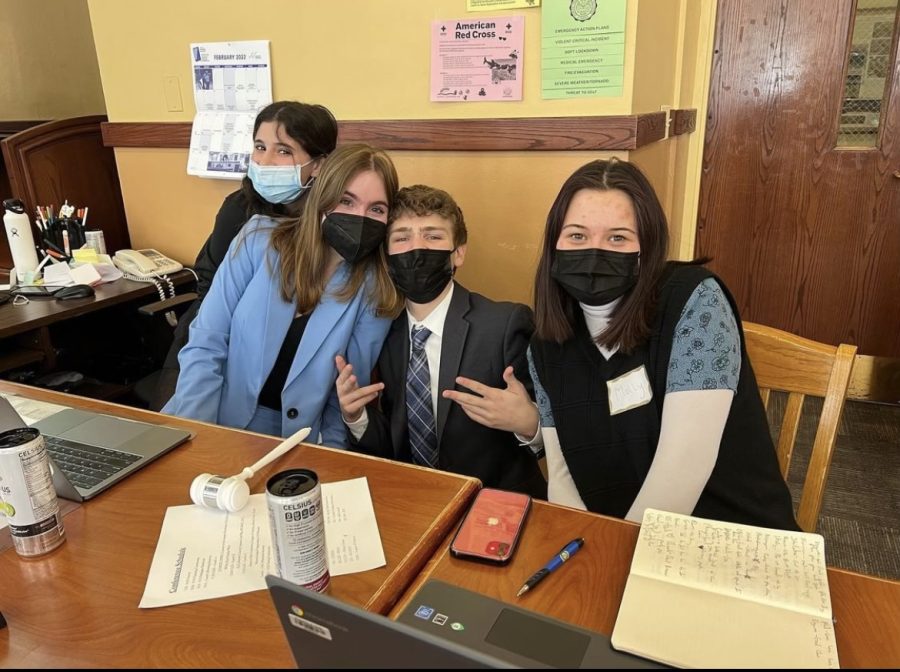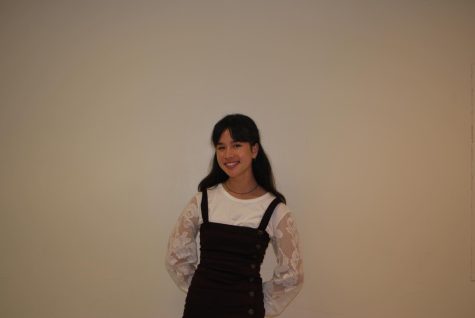Model United Nations club hosts LYMUN VIII
Success results from in-person conference
Rayna Aaronson ‘24, Sophie Barrett ‘23, Eric White ‘23, and Molly Moscicki ‘23 staff conference (photo courtesy of White).
March 17, 2022
Model United Nations (MUN) club hosted LT’s own conference on Jan. 26, organized by Secretary-General Eric White ‘23. The conference had emphasis on public speaking, international policy, cooperation, resolution writing, and confidence to help the education of delegates, according to the LYMUN VIII handbook. Twenty six schools were in attendance.
“Last year, we were all online, and it wasn’t the most appealing for new delegates to spend one of their weekend days sitting at their desks [at home writing] papers all day,” White said. “Now, they can actually go into historic buildings, and can talk to people face to face.”
In MUN, delegates are divided into general assembly committees such as the World Health Organization (WHO), International Olympic Committee, and UN Women.
For the general assemblies, each participant is given a country and debates on topics such as humanitarian or environmental issues in a committee. They stay in the country’s policy and take a country’s interest into account, International Olympic Committee Chair Ella Happel ‘23 said. A crisis committee is less country-based and more individual-based, as each delegate emulates a specific person such as a government official, or a fictional character. At LYMUN, the crisis committees were the Jedi Council (Star Wars), Post Nuclear War (2030), and Spanish Civil War, among others. Individuals in crisis committees are able to act unlike a character normally would in a show.
“It’s a really eye-opening experience to defend the other side and think of how other countries [or people] view the same topic,” Jedi Council Chair Jack Hull ‘24 said.
Delegates can be awarded with honorable, outstanding, and best titles based on the leadership of blocs (or alliances), resolutions, and how well each delegate influences the room, Happel said. The number of individual awards each school receives determines the overall school placing.
“My favorite part is the strategy of working with other countries, trying to convince people of your point of view, and that your ideas are the right ones,” General Assembly Chair Sophie Barrett ‘23 said.
The best, or highest award also receives a gavel. This year, a giant gavel was awarded to the highest-scoring school at LT’s conference. Ultimately, St. Ignatius College Prep took home the four-foot gavel.
“You might look at a club like this and see [that] you have to wake up at 6 a.m. on Saturdays and might not even win anything,” White said. “Or you can say, ‘I can know so much more about any country’s policies on issues, and when I perform well in my committee, I have a group of people that will scream at the top of their lungs when I win.’”





















![Movie poster for '[Rec]" (2007).](https://www.lionnewspaper.com/wp-content/uploads/2023/04/rec-640x900.jpg)



